Episode 293 - The Riff: Fighting Identity and Idols Throughout the Entrepreneurial Journey
In this episode, Joey Honescko, Henry Kaestner, and Justin Forman discuss the themes of battling idolatry and identity in entrepreneurship.
They emphasize the importance of seeking the Holy Spirit and aligning one's identity with Christ, share personal experiences of wrestling with idolatry and the need for approval, and highlight the significance of meditating on God's Word, seeking counsel, and being aware of one's tendencies towards willfulness or waiting on God.
Join in on this riff session by sending your thoughts to podcast@faithdrivenentrepreneur.org
All opinions expressed on this podcast, including the team and guests, are solely their opinions. Host and guests may maintain positions in the companies and securities discussed. This podcast is for informational purposes only and should not be relied upon as specific advice for any individual or organization.
Episode Transcript
Transcription is done by an AI software. While technology is an incredible tool to automate this process, there will be misspellings and typos that might accompany it. Please keep that in mind as you work through it.
Joseph Honescko: One of the most frustrating experiences is when you know something is true, but it takes a long time for that reality to actually affect your life. And I want to give you a warning ahead of time here, because in this riff episode, we're not going to tackle anything new or unheard of. In fact, if you're like me and you've been around the church for a while, you probably know some of what we're talking about. But in this conversation, we're going to try to dig in a little deeper, beyond the pettiness, beyond the cliche. We want to talk about how these realities actually affect our lives. How do questions of identity change when you're starting out versus when you found success? What idols creep in at every stage? And how do these disciplines actually help us experience a joy in a freedom unlike anything else in the world? We're going to cover all that and more in this episode. We get practical, we get vulnerable, we get just a little charismatic. And we'd love to hear your thoughts about all this, too. I'm Joey Honeskco, and you're listening to the Faith Driven Entrepreneur podcast. Let's get into it. Welcome back, everyone to the Faith Driven Entrepreneur podcast. I'm your host, Joey Honescko, and with me to riff today are Henry Kaestner and Justin Forman. Over the last few weeks, we've been, zeroing in on this theme of battling idolatry and identity. And that's kind of what we're going to do in the next season of this podcast is take these big themes and kind of look at them from different angles over the course of a month. And so this will kind of relatively put a bow on identity and idolatry. Now, those are themes that come up a lot with entrepreneurs, but this as a kind of like hyper focus. And of course, this is the riff episode. So if you have anything you want to add or thoughts always comments on LinkedIn, let us know or reach out to us at podcast at faith driven entrepreneur.org. Guys, anything you want to add before we just dive into this concept?
Henry Kaestner: Well, yeah, I hadn't been thinking about it, but one of the great things to do. You can hear us riff together. I must point out the fact that faith driven entrepreneur groups are a great place to riff together.
Joseph Honescko: Yeah.
Henry Kaestner: Which puts you in a spot with another 10 to 12 entrepreneurs that are struggling with the same things we are. And none of these are, like, really easy. It's like, you know, choose good or evil. Everybody's gonna choose good. But when we start talking about idolatry, there's a lot of nuance, there's a lot of subtlety, and it's best really processed together. If this is something that's easy and straightforward, then Joey, you just do it. It will be one man podcast. But there's something about helping, just being in communication, community, exploring these topics together. And that's what we do with groups.
Joseph Honescko: Yeah, I think it's important that you're saying that, Henry, because I don't think our listeners know this, but I'm starting my own entrepreneurial journey after being around in kind of entrepreneurial adjacent for the last ten years in my career, I'm starting my own venture, a small bookstore in our neighborhood, and I already, in the two months of my entrepreneurial journey, am appreciating and seeing the things that we talk about on this podcast, the challenges that come to an identity, the need for other people to work these things out. I mean, just the loneliness I feel at a different height than I have before. And so I guess it's like it feels like this stuff is particularly poignant for me because the highs and lows, even in just this last month or two, it just feels like I'm in like whiplash. So I guess my question is, and maybe I'm begging for an answer that I know doesn't exist, but does that feeling ever go away? Or is this just what the entrepreneurial journey is?
Justin Forman: I love hearing it's been so refreshing hearing your conversation just about what you're going through, because it makes it vivid and real. That first time that somebody is kind of going through that, walking through it and experiencing it. But I think we're reminded that it's a thorn that's right there from the beginning, like it is in entrepreneurship. It might be most acute in some forms of entrepreneurship, but it's one of those things that carries with us from the beginning. I mean, we've seen that Joey. And then some of the interviews in the podcast and the video stories we've talked about with whether it be people like Coby Cotton or Jeremy Lin or they're talking about this in the realms of sports. And, you know, there's a really powerful quote that Coby, in a moment of vulnerability, talks about in the story that we filmed with them, about how seeking your identity and views view count the look from a teenager recognizing you or something like that. That brings it very specific. It brings it very real. And I think it starts at a young age. And I think it's one of those things that we've got to figure out how to battle throughout the rest of our life. I don't think it's one of those things that you ever check off the list, put it away. I think it's a continual thing that we're walking through.
Henry Kaestner: And yet walking through it together brings us in community and we seek God. And it's an incredible journey. And yet we're not fully finished it until we get there. And that's at the end. But all these tensions we work through, never having the complete answers to them, is part of the point, I think. And I think that's part of the point too, is we see this in Scripture. Somebody hit this to me the other day, which is, oh, I was at an event with Jon Collins and Tim Mackie of the Bible Project talking about, gosh, you know, Jesus always talking in parables. I mean, he could have been so much more clear and so much more straightforward on some really important questions that we all looking for. It's the very process of seeking them out that I think, is the point of us being brought closer to God as part of the sanctification. So the bad news is, you'll never be completely free of the struggles you have with some level of idolatry. That won't happen even in your work. We see this in the fall, and yet the very process of that struggle brings us closer to God. And that is the point.
Joseph Honescko: Well, and that seems honestly what has drawn me to entrepreneurs and now entrepreneurship is I think that there's this unique thing that entrepreneurs experience because of maybe it's the risk involved, or maybe it's the just kind of unknowns that they have to step into. But there is this way where, like our faith is stretched and our faith is challenged. And I think that when we experience these crossroads and what I'm experiencing now, and I know you guys have experienced in your careers and are experiencing in different ways today. Is that as you're risking, as you're taking these leaps of faith, it seems like it's new opportunities to trust in God, or it's new opportunities to just put the burden on yourself more fully. Right? And to say, hey, I'm the guy in charge I can power through. So I'd be curious to hear, just in y'all's career, building the various things that you guys have done. When you've reached those crossroads where it feels like you're either desperate for the Lord or desperate for your own control, how have you been able to choose to pursue God and pursue the identity that he calls us into, rather than just doubling down on our own efforts?
Henry Kaestner: I've just doubled down on my own efforts. And then. And that didn't work. Then I triple down and quadruple down semi. Famously, David and I went, 0 for 40 venture races. We could do it under our own power. We're entrepreneurs. Entrepreneurs raise money. And so that's of course, what we're going to do. And we'd pray before we went into every one of these meetings with the venture capitalists that we'd walk out with a $20 million term sheet. But we're never praying about whether we should be raising capital at all for two and a half years. We banged our heads against the wall. As we doubled and tripled down. I'm trying to do things under our own power without seeking God. Which doesn't mean that the path of an entrepreneur, of course, is just one where you just sit and wait for God to do it for you. And yet we have to seek him first. And you see it. You know, our internal staff hears me talking about all the time. It's the good kings versus the bad kings of Judah. Of course, you're listening to a faith driven Entrepreneur podcast, and you're not supposed to do the things that the bad kings of Judah did, but don't do the things that the good kings of Judah did to every one of them except Josiah, made a massive mistake in not seeking God out, and it didn't go well for them. Some of it is a trade deal, like doing a trade deal with Kush. Didn't seek God out and that is the challenge we all have because we want to do things on our own power, which is a form of idolatry. Anything that keeps us out of relationship with God first and foremost is a form of idolatry. And you're hitting on the biggest one first for any entrepreneur. It's being willful versus faithful and not seeking God out on. What do you want me to do now? If you seek God out, whether we should be raising capital and you don't have an idea, you don't hear a clear answer, then go make it happen. But that was not the mistake of the good kings of Judah. And that was not the mistake that David and I made.
Joseph Honescko: I'm curious, Henry, because you said there that in those processes, when you're about 0 for 40, you guys are praying before these meetings. What changed in your prayers where you started to say, okay, no, now we're genuinely seeking the will of God versus maybe, I don't know, like a blanket prayer or something. When did you start seeking the will of God and how did that change things in that process?
Henry Kaestner: Well, we were semi broken, right? You know, you're raising capital. You think you've had some success, you're starting to run out of money and that makes you more and more desperate. First, it makes you more and more desperate to do things and just work harder. And then you're working harder, and then you don't find that changing and then you get sort of broken. And it is like in desperation, you get broken and you reach out to God. And God's been there all along, and then he shows you a way. And he rescued us. He rescued us. And in just a series of amazing, borderline miraculous. Maybe they're not borderline at all, but a bunch of events in which he showed up and it worked out great, but it comes from just realizing we couldn't do it on our own power. And yet, you know what? Along the way, it's not like for two and a half years, we were completely stupid and completely dumb, and we paid lip service along the way to want to make sure we're seeking God. And I'm sure I talked to other entrepreneurs during that time about the importance of seeking God out. And yet my underlying behavior and my heart posture wasn't doing that. But the answer is at some point in time, you'll find you can't do it. You reach a point, brokenness, where you cry out to God, and he's been there all along. Just like when we get to ask.
Joseph Honescko: Justin, what about you? Kind of in your journey, where have these crossroad moments? I think Henry's talking about something key here, where you just arrive at that brokenness, in that desperation. Where have you seen that kind of play out? Both kind of in starting but also scaling operations?
Justin Forman: Well, I mean, it's at every turn. I mean, you find it everywhere. I mean, Henry hit on one angle of it. Maybe if I were shifting to a different angle, it's like, how do you care about something so much that you want to break through something that like some force field of resistance, but knowing when do you use your power, your strength, your dealmaking or whatever it might be in an industry? And when do you just kind of throw up your hand and say, you can't? And it's like just that I was reminded of a book, Seizing Your Divine Moment by Erwin McManus, and he talks about this idea of like. He tells a story of a guy that is a pastor. Graduating from seminary has all the opportunities in front of him 5 or 6 job offers. He's like, man, I just don't know what to do. I don't know what to do. I don't know what to do. And Erwin's just like, man, are you praying or are you seeking God? He's like, I guess we'll just choose. And he says, just choose. And it's interesting. Like I remember hearing that is like a 20 something. And it's like it tried to to talk about that faithful versus willful tension. I think Henry's talking about. And then it's some level, it's like some moment you feel that way, man. You should just choose. And then sometimes you feel like you should just do nothing and pray and seek God. And it's just that how do you find the right step for the moment, the right action? For the moment? I think it's matching and pairing almost as much as it is anything. I think it's a lot about that matching. It's matching the you know, they talk about in sports, it's just like how do you match the moment? How do you match the tenor of the game or what's needed the game, like going out and trying to make the game come to you versus going out and getting it like, I mean, they talk about that so much, and I think that that analogy is like, we don't realize how much that is about entrepreneurship. Like the savvy veteran star players of the NBA, they're like, okay, when do I go out and make it happen? And when do I let the game come to them? And I think that that's a tension that entrepreneurs are wrestling through in so many different industries and scales. And I'll just be the first. You struggle with it. You don't know. I'm wishing that there was a sign that you drove by every day that changed. And weird every time you went running that you just saw some undeniable sign of like x plus y equals. This is what you're supposed to do. And operating in the gray, operating in that ambiguity, man. It's a messy place.
Henry Kaestner: So that's 100% right there. Many times when the answers are not immediately apparent, and yet there is an equal number of times, at least when the answers were there all along, in the times where I felt the closest to God had been in His word, where something in Scripture comes out and just like speaks to me and it is unbelievable. I've read the same passage over and over and over again, and yet all of a sudden I see what he's trying to say to me in a way that if I am just speed reading through the Bible as I'm too often would do, or I'm multitasking, I'm listening to Bible. But I've got something else going on I'll miss. But he's been there, speaking to me all along, and I hear him three times more now at age 54. And then I did when I was 34, in the early days of bandwidth. And he just like I was there all along.
Joseph Honescko: Yeah, it feels like there needs to be like Justin you're talking about that sense of that tension of when to push in and when to kind of pull back or retreat to the Lord. And I think that a lot of our audience, we all resonate with this question of, we'd love to hear the Word of God audibly, or pass some sort of sign that says, here's the next step. But I do think, you know, Henry, you talked about the parables earlier. Just God works in the grey, God works in those mysterious places, and he calls us to faith. And I know that I've had those moments where there have been signs that I'm not operating out of faith. Rather, that's just kind of a gut feeling, or just even the way that my days and habits are aligning. So for you guys, are there signs to where, hey, something's off and I'm in that place of striving at this point.
Justin Forman: I mean, I think there is in so many areas of life. I think there's so many ways you could answer this question. I grew up in a very conservative home that almost, you know, sometimes I wondered, what's the role of the Holy Spirit in this? I married a girl that came from a more charismatic background in a church. And now I would say to Henry's point, at like 43, you start to see the Holy Spirit working in ways like in the little things of what you're mentioning of like that passing conversation, that person that like an email that comes in from a customer or something or somebody else, or a timely phone call or timely text, I think there's certainly a more of a receptivity to that. And you appreciate just kind of the way things work. I think that before. You don't know, but now you kind of appreciate or at least pause enough to maybe ask the question. You know, it's hard because, like, you look at Scripture and so many of the stories were said, it's like, oh, well, you know, the fleece on the ground was wet. Hey, this sign was clear. This sign was that. And now it's like there is that little ambiguity. And you looked at some of those moments in Scripture and it's like, man, that was so clear. And yet they disobeyed. You know, the people of God disobeyed. They ignored it. And it's like, I think there's just so many more opportunities. It reminds me of, like Chozen, when we're talking about the story, it's like from red letter to red letter kind of thing. And like the they talk about the word, but there is still some creativity in the in between. But when we read scripture, we just see these, like sometimes these defining moments. And I think that there's just this recognition of like, there's so much in, in between to sort through. And certainly there's bodily rhythms, there's habits, there's things that like you're alluding to, but just confessing, like there's some moments where you just you want that clarity. I mean, the fleece wasn't being wet by somebody else. It was being wet by God.
Joseph Honescko: Yeah.
Justin Forman: Like so you couldn't question the source. You knew where it was coming from. You didn't know. Is this a distraction or is this straight road?
Henry Kaestner: You know, it's interesting you're talking about that. People wanting that clarity. I think that we need to acknowledge that there are faith driven entrepreneurs on both sides of this kind of divide. One type are ones that are prone toward action, doing things under their own power. And there are another type that maybe are waiting on the Lord too much. And it's like, make a decision. You sought me out. And in this case, I want you to make a decision where you feel empowered to get out there and do things. And so I think it's important for people on both ends of that spectrum, again, because that's a real thing, people waiting, right. Like, I don't know if I can do this because I'm still waiting on clarity. How do we know about where we're supposed to wait on the Lord and where we're supposed to jump in as a combination of so many different things? But I think that part of the victory comes from understanding that prone [...], based on who we are and who our friends help us to know who we are and who we learn about ourselves from spending time in prayer and then through reading Scripture. Are we aware of the fact that there is such a dynamic where we might be prone to taking action before seeking God, and we need to work on that, or that we're prone to not wanting to do anything until we've got some sense of clarity from God, and therefore we're just kind of paralyzed. But for the early stages of my career, I was not aware that there's such a dynamic as being willful because I thought I was joining things. I was a Christian. I went to church on Sunday and I read the Bible every day. I didn't know that I was prone towards willfulness in my own life as a form of idolatry, because I don't know that anybody really pointed that out to me. As I'm getting older, I know that I'm prone to that, and I need to go through and say, am I being faithful or am I? Being willful. And, Henry, your inclination is to be willful. So you need to really make sure that you're not making the mistakes of the, again, the good king to Judah. And yet, Joey asked me about the last three important decisions I made. I said in the last three moderate decisions I made and what I did to seek out God's Word through reading His word and or prayer or seeking counsel. That allowed me to make those decisions. And I'll tell you, I probably did for 1 or 2. But I bet you didn't do it all for all three.
Joseph Honescko: Yeah, well, I think what both of you guys are touching on is something that this could get a little charismatic for our episode, but, we're talking about the Holy Spirit, right? And that's something that maybe we don't talk about a ton on the show, but there is some version of, you know, Justin. I'm thinking of what you're saying with the fleece and that story of Gideon. And then I think about the passage in John. This one always messes with me because it's it's almost irritating because Jesus says near the end of his ministry to his disciples, I'm leaving you something that's better than my actual physical presence. So better than the person of Jesus. Being next to you is the Holy Spirit living within you. And we have access to that as Christians. So it feels like this challenge. And I think that's kind of what you're saying, Henry, is that some of us are going to be prone to one thing, some of us are going to be prone to another. But really, the only way to discover that and to iron those things out is to be genuinely seeking the Holy Spirit. And I think the reason why that passage has always stood out to me is like you're saying, Henry, I believe it with my head. Right? But then when real conversation comes up, when a real opportunity comes up for me to just seek the spirit above anything else, I tend to go towards just my instinct or my gut or something else. So I don't know where that. Henry, you have any thoughts on that? Just the role of the spirit and how that plays in the life of the entrepreneur.
Henry Kaestner: Yes. And I'm really glad you brought it up. And I came to faith in the PCA, and I'm still an elder in the PCA, and I love the PCA. But one of the things that we don't do enough is talk about the role of the Holy Spirit. And so we've been on a number of meetings today where we've prayed that the Holy Spirit and these are and group environments in which there are a big difference of opinions, backgrounds, perspectives, etc. and yet, through the grace of God, these couple of meetings have been with all people who know Jesus. And so we're able to pray. Heavenly father, may the Holy Spirit that you deposited in each of us when we first believed all agree, so we can hear from that spirit. It's a spirit of unity, because we know that a kingdom divided against itself will fall. It can't work. So the Holy Spirit will only agree on this. Call with three of us on the podcast and among our listener base. And yet we still have a voice. There's the enemy that would want to just completely just distract us and lie to us and deceive us. But if we pray and acknowledge the presence of the Holy Spirit. That it was given us and that it's a powerful force. It's God in us. I mean, that's the miracle of our faith. I mean, on one hand, yes, Jesus dying on the cross and resurrection. That's amazing. But maybe the bigger miracle is the fact that God is in us. The Holy Spirit part of the Trinity resides in us. We see it over and over again in Scripture, and yet we don't acknowledge that the way that I think we can, which means that we're just not being able to tap into the very real power of it, of him.
Joseph Honescko: Yeah, I'm curious with this, because I think we've talked a lot about how this shapes kind of and maybe this was my bias as I'm in this space right now. But we've talked a little bit about how this shaped the early parts of your career and kind of where you guys have been. But I'm curious as we progress in our entrepreneurial journey. For me right now, like there's all sorts of questions of identity and idolatry of like, you know, there's a very real moment the other day where I was interviewed for a newspaper, and that was cool. I've interviewed lots of people in my career, but I've never had someone write about me, and that was a really cool moment. And it was this hilarious, just vision of identity where in the moment I was like, this is cool, someone wants to interview me. And like the second I opened my mouth, it was like everything you said was stupid. You're a fool. You don't deserve that. Like it was this wild, up and down emotional identity thing. And as I reflected on that and as I was praying about it, I realized, like, man, both of those are just rooted in myself. Rather, I'm so smart and I'm so great. Look how important I am or I'm so dumb I sounded silly, I whatever, and it was so rooted. So that feels like very true to the founding of something. Because I'm so unestablished, I'm trying to make my mark in the world. But how do questions of identity and idolatry and this need to find that identity in Christ, how does that change? Maybe as you've scaled and as you've grown? And, Justin, maybe I'll start with you, like, as you've kind of gone past that, hey, I've done it. I've established myself. Where do those questions of identity show up? In maybe different ways, or maybe the same ways that, like I'm experiencing.
Justin Forman: I think they show up every day. I think when you're talking about Joey is like I mean, it's the video story that we filmed with Jeremy Lin. He says, me, in the first five years of my basketball career, I was kind of wishing it was over because I was just like, I didn't know if I belonged. I didn't know what this look like and all that idea. I think in some ways, like the entrepreneur, Henry uses this language like we're all always selling something to somebody. And in those moments of quiet, there's like, what's the soundtrack that's going to play? And I love Jeremy's talk. In the interview that we had, we said, like, you gotta fill it with a positive soundtrack. And I think sometimes, as Henry said, there's maybe people that [....] too much on reflection and there's people that are [....] too much on doing. I think in moments in my journey, for me, the things I struggle most is when there's a seasons of doing and you're so busy doing, then all of a sudden you shift gears. Or it can be a weekend, it can be a run, it can be this. It can be a plane flight, a trip or travel that you just kind of question like, whoa, whoa, whoa, whoa, what's going on here? And it's kind of like what you said. It's like, you know, the first question was fun. The second moment was like, wait a second, what's happening here? And I think it's that it can be that often, but I think it just kind of instills the importance of, like, you got to be grounded in your identity daily. I love Jeremy's do that daily. If not, there are too many thorns. That we are surrounded by too many worries of the world for directions. And so I think oftentimes for me it's the season changes. You know, I mean, you're a baseball guy. So it's it's all about the season, right? There's the spring training season. There's the dog days of summer, and then there's a pennant race at the end. And I think entrepreneurship always has seasons. And as you're going from different seasons where you know the friends and family and just start in and hustle into a couple of people in the team to that next layers of scale. I think there are those moments where either you're wrestling through it internally or wrestling through it as a team of like, who are we? What are we doing? And kind of what's our role? And, you know, much of that is, as we've said, entrepreneurship is sometimes about our sanctification.
Joseph Honescko: Henry, any thoughts on your end just from where these questions of identity show up in maybe different ways, you know, today in your 50s than they did when you were starting out in your 30s? Or is it just the same questions that just kind of show up in different ways? How does that work over time?
Henry Kaestner: In many ways, it's the same questions the idols, being a place where my identity is firmly rooted in Christ is going to be something that I'm going to be working on probably for the rest of my life. And yet I can celebrate how I've made strides there through God's grace. The idolatry can shift a little bit as you get older in your career. You start thinking an idol can be something like legacy and protecting your image. Or probably one of the biggest things that I wrestle with is wanting to be liked, wanting to be liked, and that wanting to be liked can take the place of my really have my identity in Christ, and having the thing that I want the most to be honoring him. So what does that mean? Wanting to be liked, okay, so if I think about the last 8 or 9 different times I've interacted with people who don't yet know Jesus. I've been more interested in whether they like me than whether they come to know what fuels me and where my identity is.
Joseph Honescko: Yeah.
Henry Kaestner: I've been given amazing opportunities to be able to share the reason for the hope I have with gentleness and respect, and yet my idolatry towards wanting to be liked and accepted in those different types of social circles has clearly trumped my primacy in my relationship with God and saying, God, how could you use me here? And may that be the only thing I care about, and may I play for the proverbial audience of one. To some degree, I think that I've always been in a spot where I've always wanted to be a people pleaser, and I've always wanted to be liked, that's probably shared by anybody. But maybe in some ways that's changed. There's been a nuance is I have some sort of an identity. I have an identity of being successful, and we all know it's through God's grace. But a successful business person or family person, and I don't want that identity to be erased in people's minds. And I'm more interested in what other people think. Often times, maybe most times then I am interested in what God is thinking about that interaction or that activity I'm involved with.
Joseph Honescko: Yeah. I think as we're kind of coming to the close here, I think I want to land on this idea of I just keep coming back to that thought with the Holy Spirit that we were all talking about. And, Justin, you said something about those seasons and just the pace of entrepreneurship. And, Henry, you were talking about the times that you felt closest to God were the moments when you weren't just doing a quick scan of Scripture and, man, it's like the most Sunday school answer. But what I'm hearing you'll say is the best way for me, Joey, as I go on my entrepreneurship journey or our listener, regardless of where they are in their entrepreneurial journey, the best way to combat these questions of identity and to experience the full joy of having an identity in Christ, right? The freedom that comes with that to not have to strive. The best way to do that is to seek the spirit. Seek the voice of the father, to actually do that, rather that scripture reading or prayer, but doing that with intentionality and with rhythms that even in the fast paced nature of the season of entrepreneurship, to make that a priority. Is that a fair way to kind of summarize what some of us are saying here?
Henry Kaestner: Yeah. Well, you know, okay, let's acknowledge that some amount of this discussion we've had has been a little bit pithy, cliche, Sunday school ask. Right. And it's not like we've introduced this new nine step format like, oh my goodness, I've got this framework. I now know it like, oh my goodness, I've been stuck in step four or step seven. And we keep on bringing people back to the Holy Spirit and spending time in God's Word and getting godly counsel and helping us to be conscious of the fact that idolatry is a thing. We're going to struggle with identity for the rest of our lives. And yes, that impacts us at different stages, but it is important as Sunday School as it sounds. A lot of this can be summed up in wisdom that's been in God's Word for 3000 years, and yet we miss it as obvious and as familiar as it is. And so I'm just going to read real quickly from something that I believe that God put on my heart, that the Holy Spirit put on my heart as Psalm one. Blessed is the one who does not walk in step with the wicked, or stand in the ways of sinners. Take or sit in the company of mockers. Some number of the last 8 or 9 interactions I've had with people have been with all three of them. Okay, but whose delight instead is in the law of the Lord, and who meditates on his law day and night? Am I meditating on his law day and night? No I'm not. Some of the time I'm spending sitting in the company of mockers. People are making off color jokes and just like and know, just sharing the love of Christ with them in a generous and respect way. Man, I'm convicted this and yet I know someone so well. So it goes on. Of course, that person who meditates on his law day and night. Is it like a tree planted by streams of water? Who yields its fruit in season and his leaf does not wither? Okay, there's important there fruit in season. Okay? That means that there's some seasons in which it doesn't yield fruit. Now its leaf is always green, but sometimes it doesn't yield its fruit. So we also talked about the fact we're going to struggle about this until the end, because there's actually a time of revelation where the if you look at the trees in the New Jerusalem, they bear their fruit every month. It's always full on its fruit season in the New Jerusalem. Okay. Whose leaf does not wither where if they do prospers? Sounds pretty good as faith driven entrepreneur we all want to prosper, right? If we meditate on the law, God's law day and night, we can prosper. Not so the wicked, etc. we know those things, right? If the Lord watches over the way of the righteous, but the way the wicked leads to destruction.
Justin Forman: Yeah. The thing I would just add is when we talk about entrepreneurship and especially when we talk about faith driven investing, we talk about what's the exit strategy for a venture. And I think that there's a helpful thing for us to remember. Our exit strategy as entrepreneurs, as cool as the faith driven entrepreneur and faith driven investor. A piece of content, a website or brand is all of this goes away. All of this is a tool to what is to come. All this is a sand castle, if you will, that gets washed away in some ways, in some physical sense. And so just remembering, kind of like our exit strategy I think is one of those things that helps you keep those idols at bay, helps you keep those things in check. But I guess my closing thought here, Joey, would be the thought that you said a better. About the Holy Spirit. I'm never, ever really kind of marinated that. Enough for it to, like, seep in. And I think that there really is something that even as we started this episode, we were like, man, [...]. I was so clear in Scripture and to the promise of what you're talking about, of saying the word, that he gave us something better. What does it look like for us to step into understanding that?
Joseph Honescko: Man, grateful for the two of you? I just I'm thinking about, you know, Henry, you mentioned it's none of this is new information, right? This is all stuff. If you've grown up in the church like I have, it's stuff you've heard a million different times. But hopefully through an episode like this and through just engaging with other people and pursuing the spirit, we're seeing these things in new ways and saying like, man, it's easy for me to know these things are true with my head, but to actually pursue them with my life, to actually prioritize them, to actually become that tree that is planted by a stream of water, that's got to be the desire for every faith driven entrepreneur. And, the roadmap to there is simpler than we want it to be. Pursue God, pray Scripture, be like Jesus in the sense that he listen to the voice of His father. And that's what's available to us in the spirit. But man, thankful for you guys. If you have any thoughts again, send them to podcast of Faith driven entrepreneur.org. Lots to talk about. We'd love to chat with you and get your thoughts on these comments on LinkedIn. And, we'll see you at the next episode.
Joseph Honescko: Thanks for listening to the Faith Driven Entrepreneur podcast. Our ministry exists to equip and resource entrepreneurs just like you with content and community. We know entrepreneurship can be a lonely journey, but it doesn't have to be. We've got groups that meet in churches, coffee shops, living rooms, and boardrooms around the world. Find one in your area or volunteer to lead one and bring this global movement to your own backyard. There's no cost, no catch, just connection. Find out more at Faith Driven entrepreneur.org.





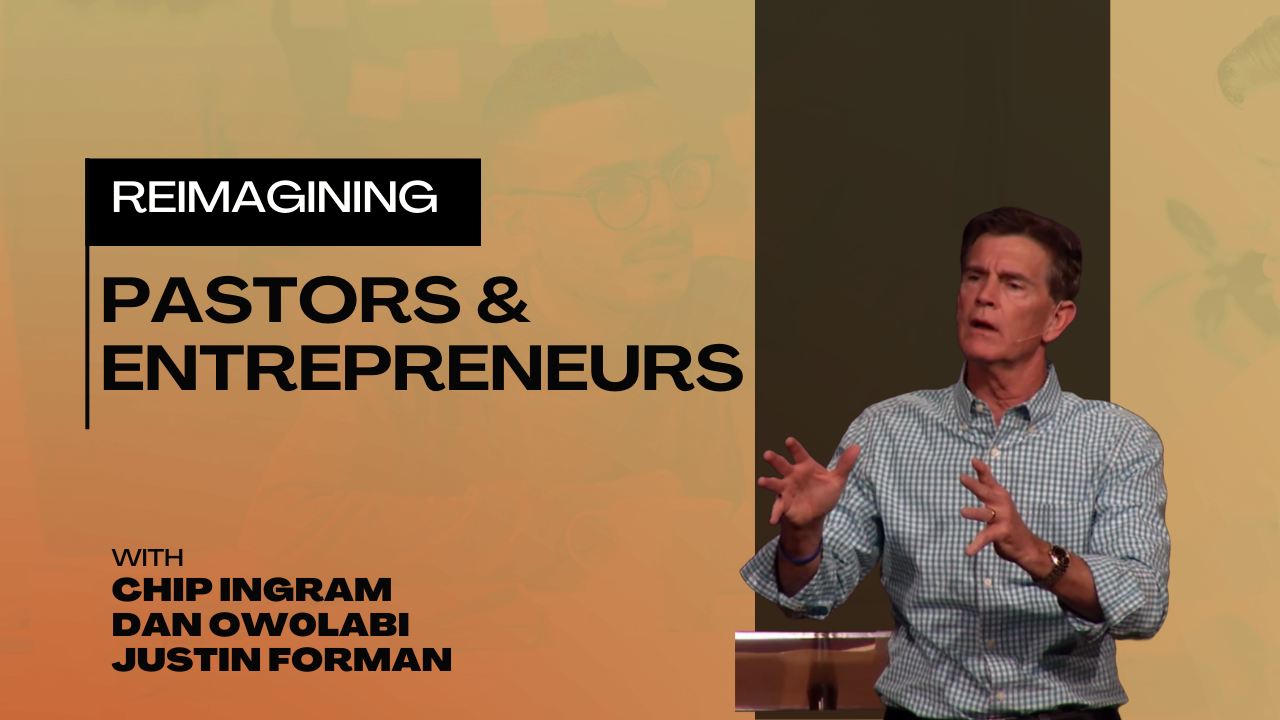
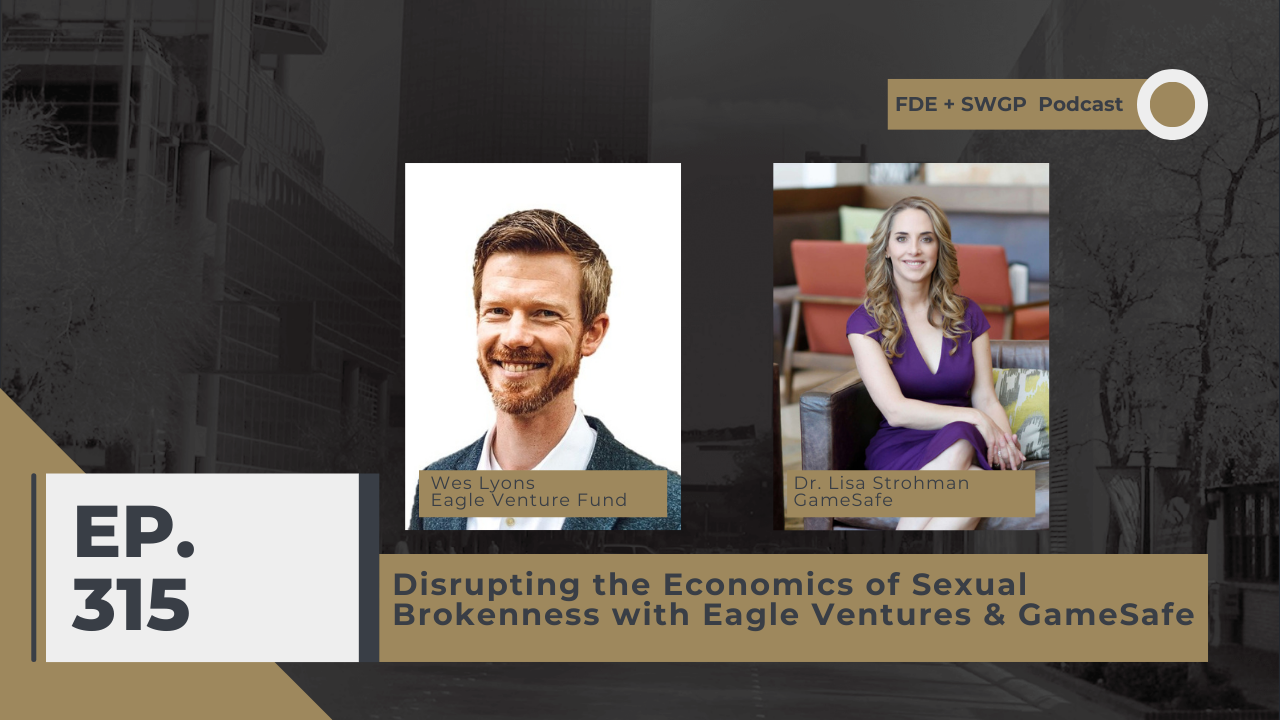
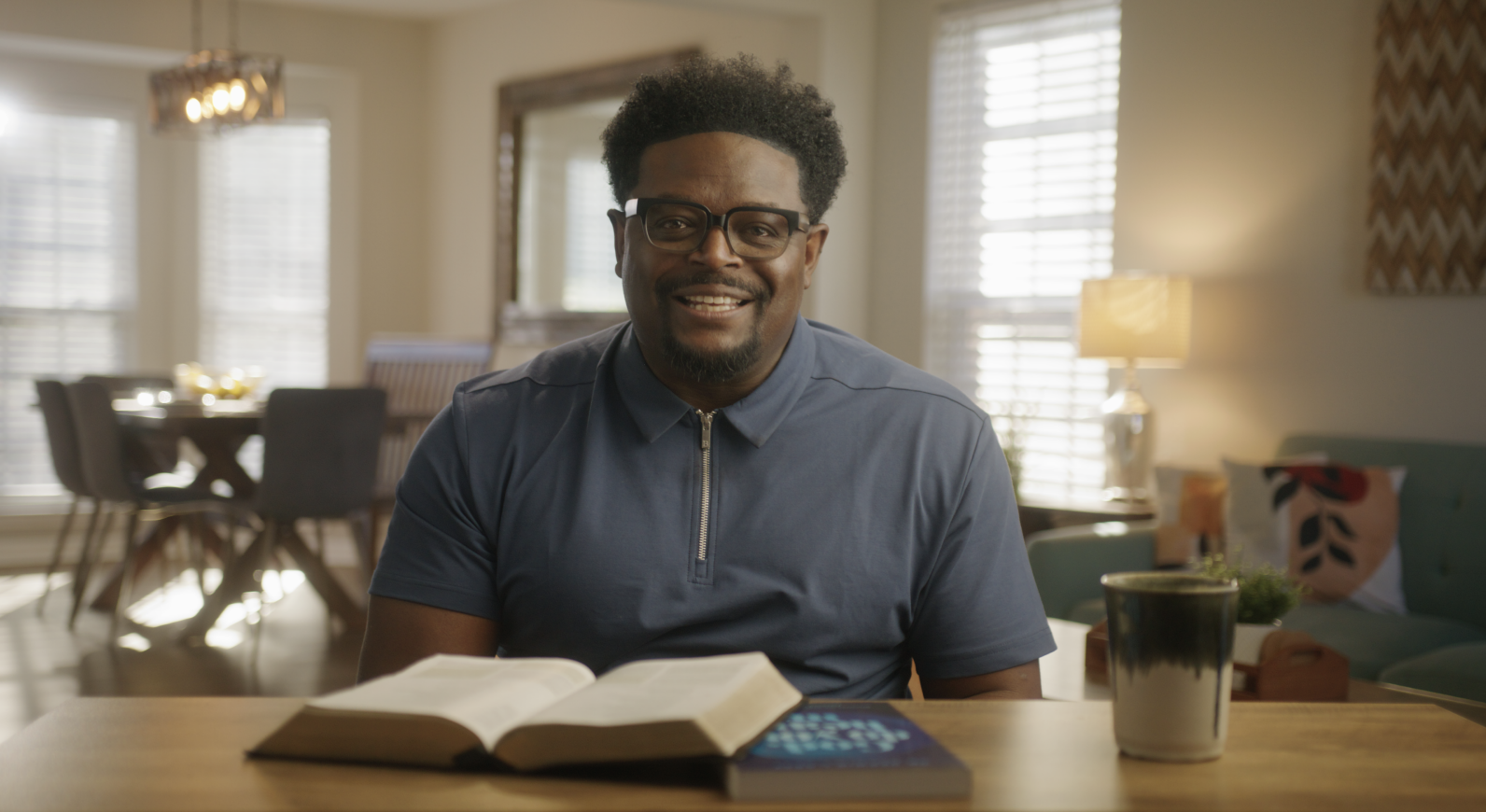
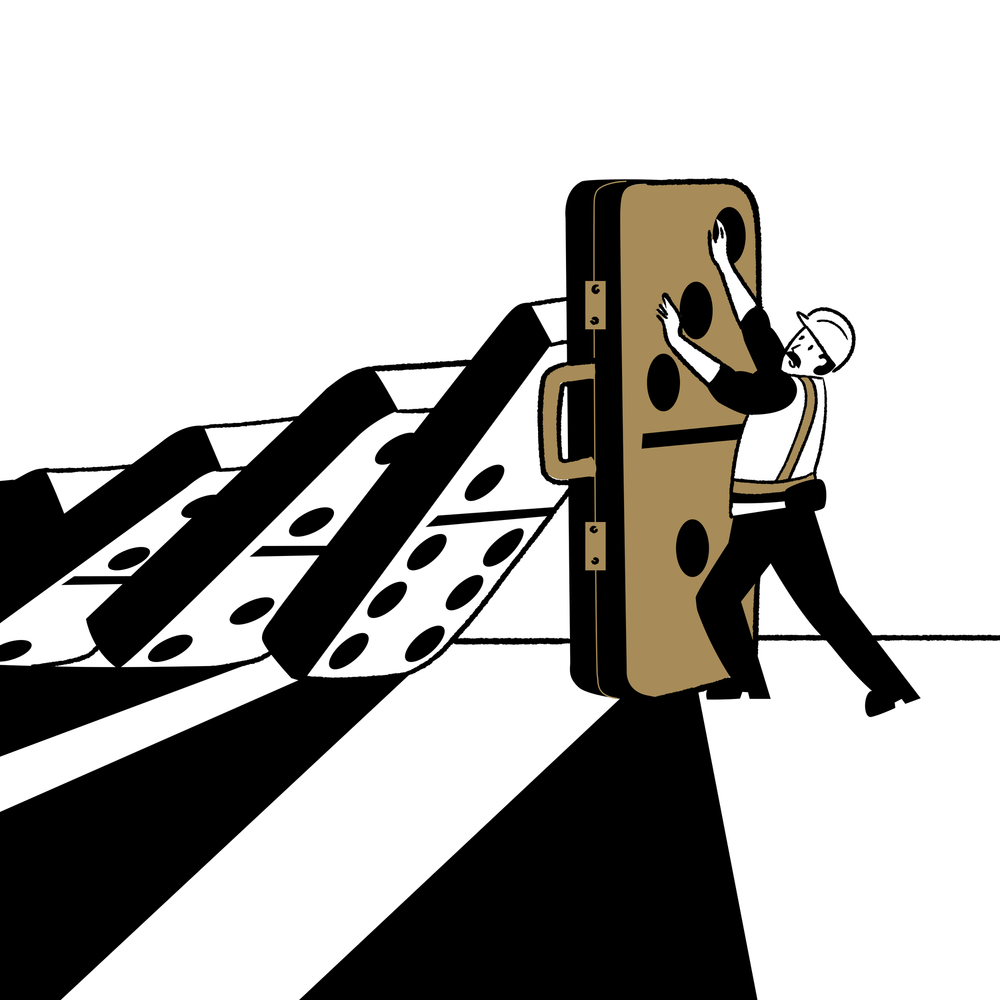
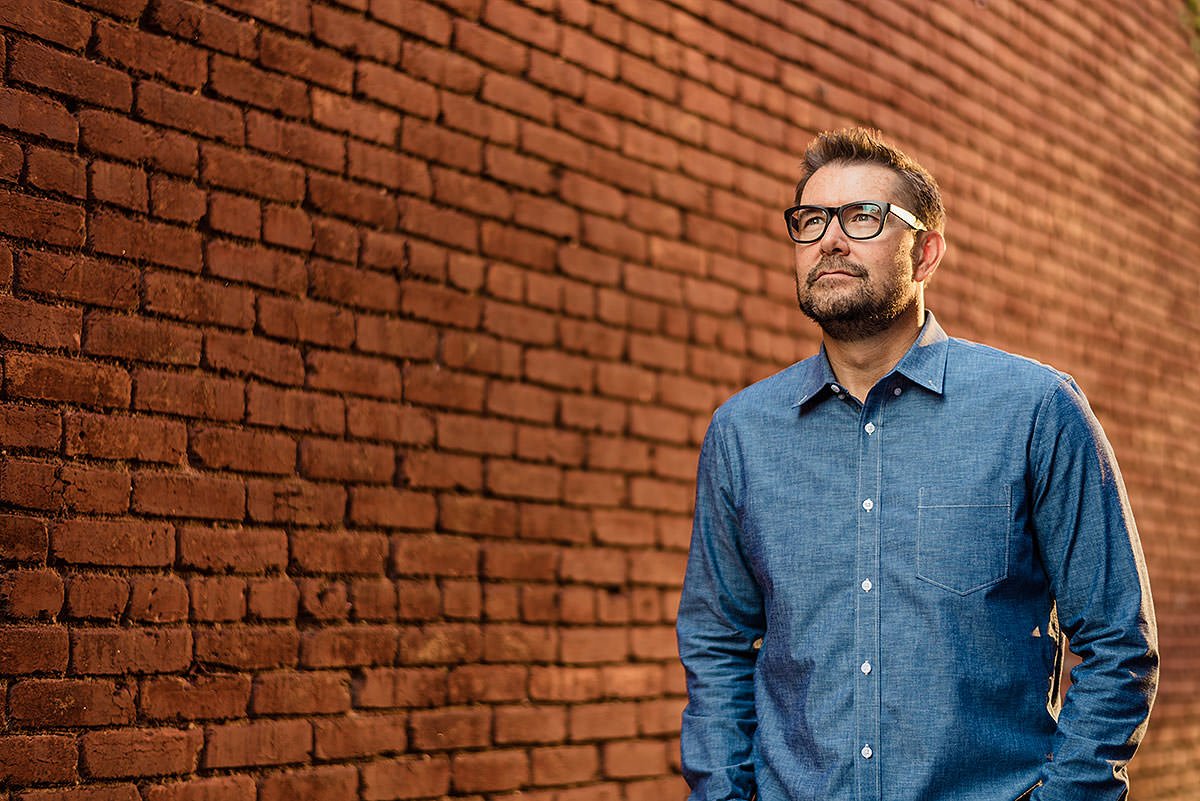
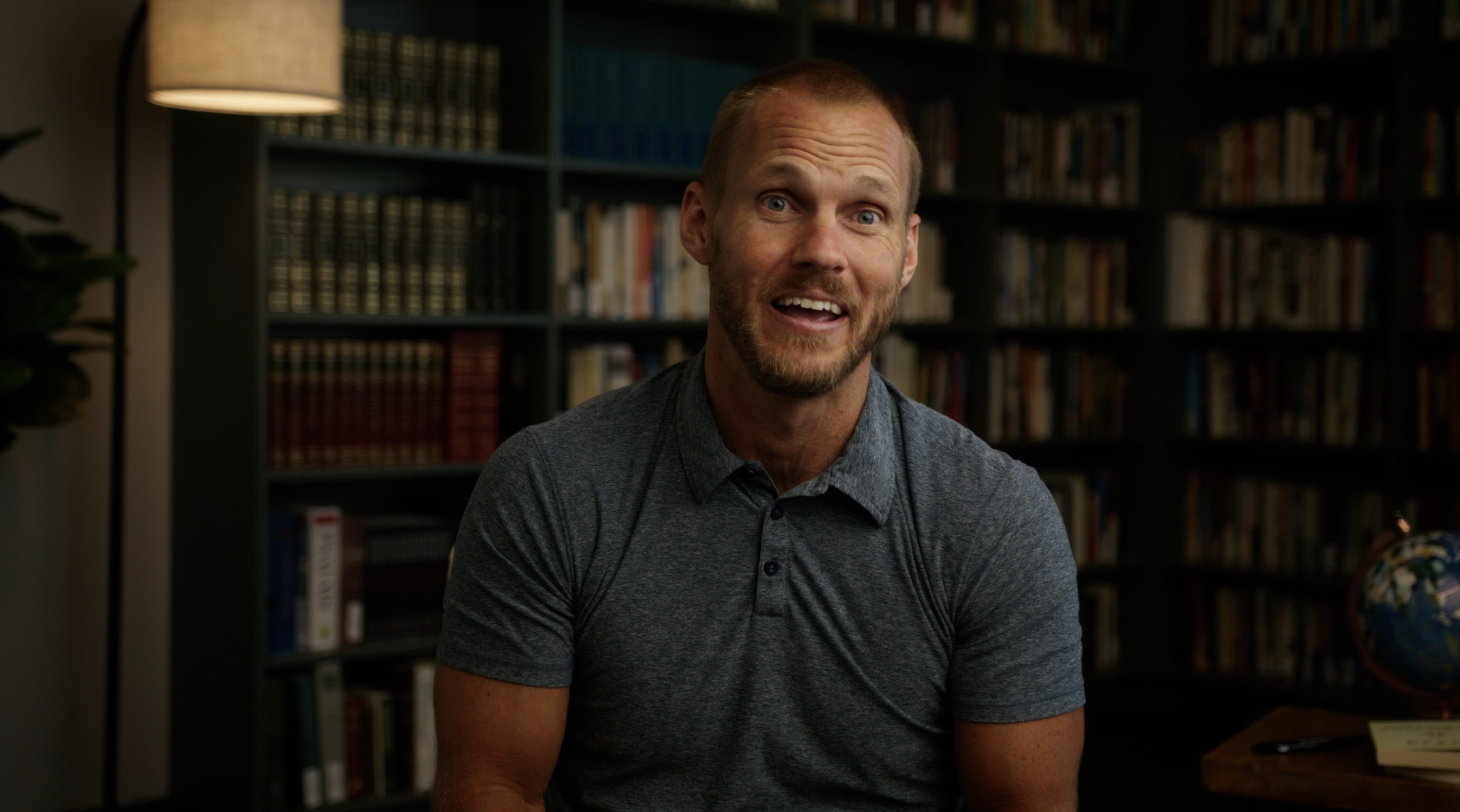
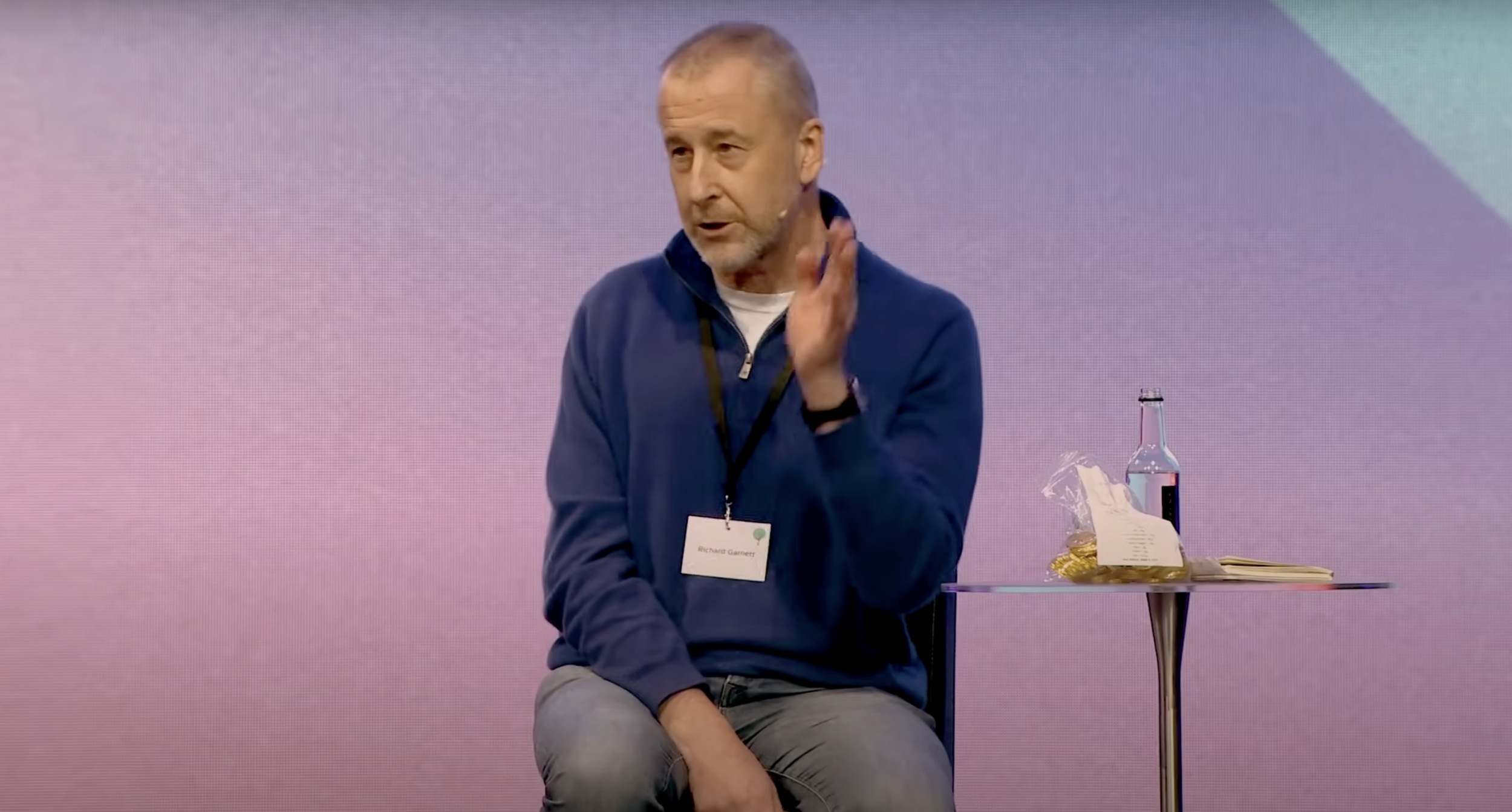
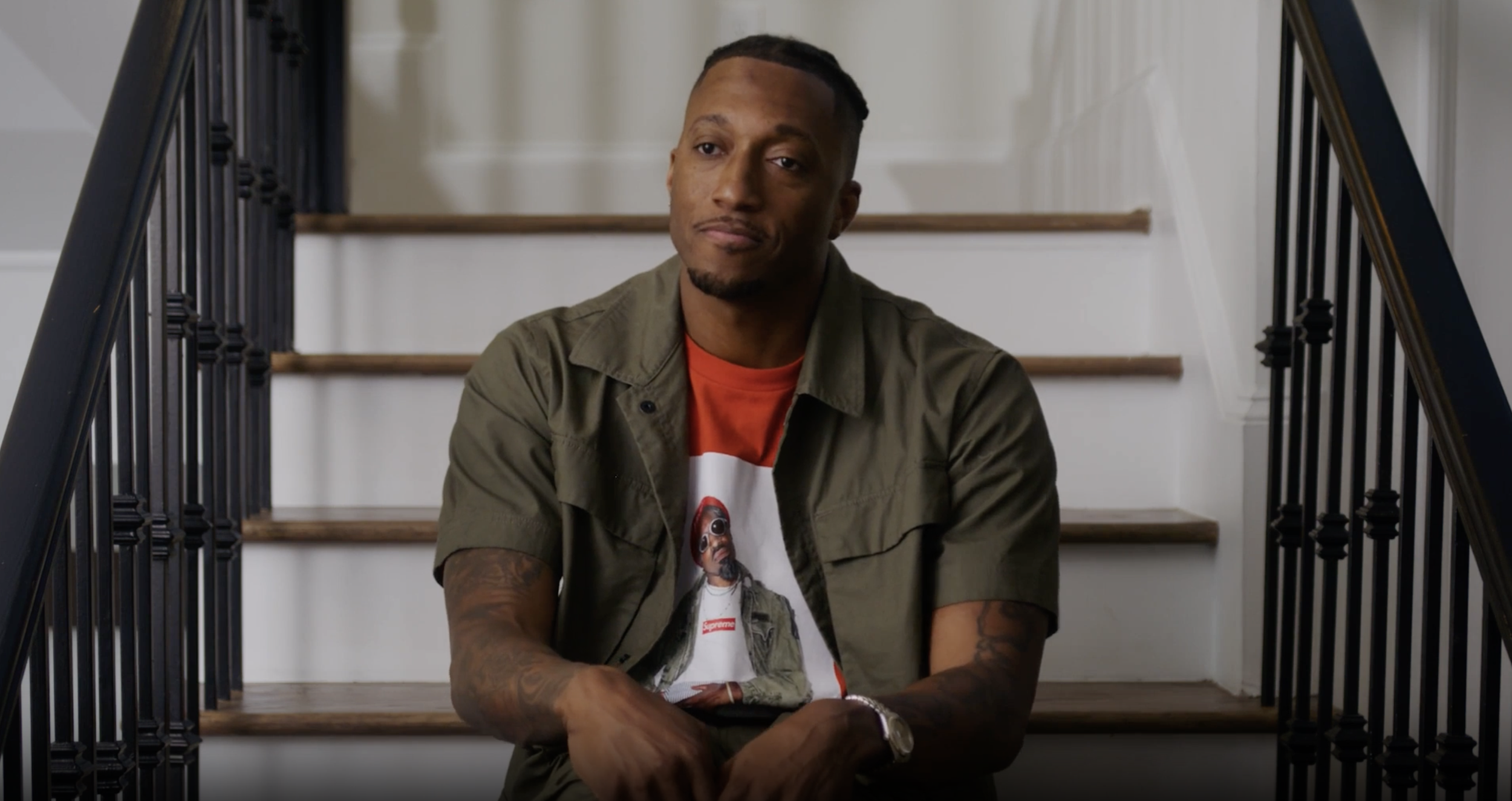
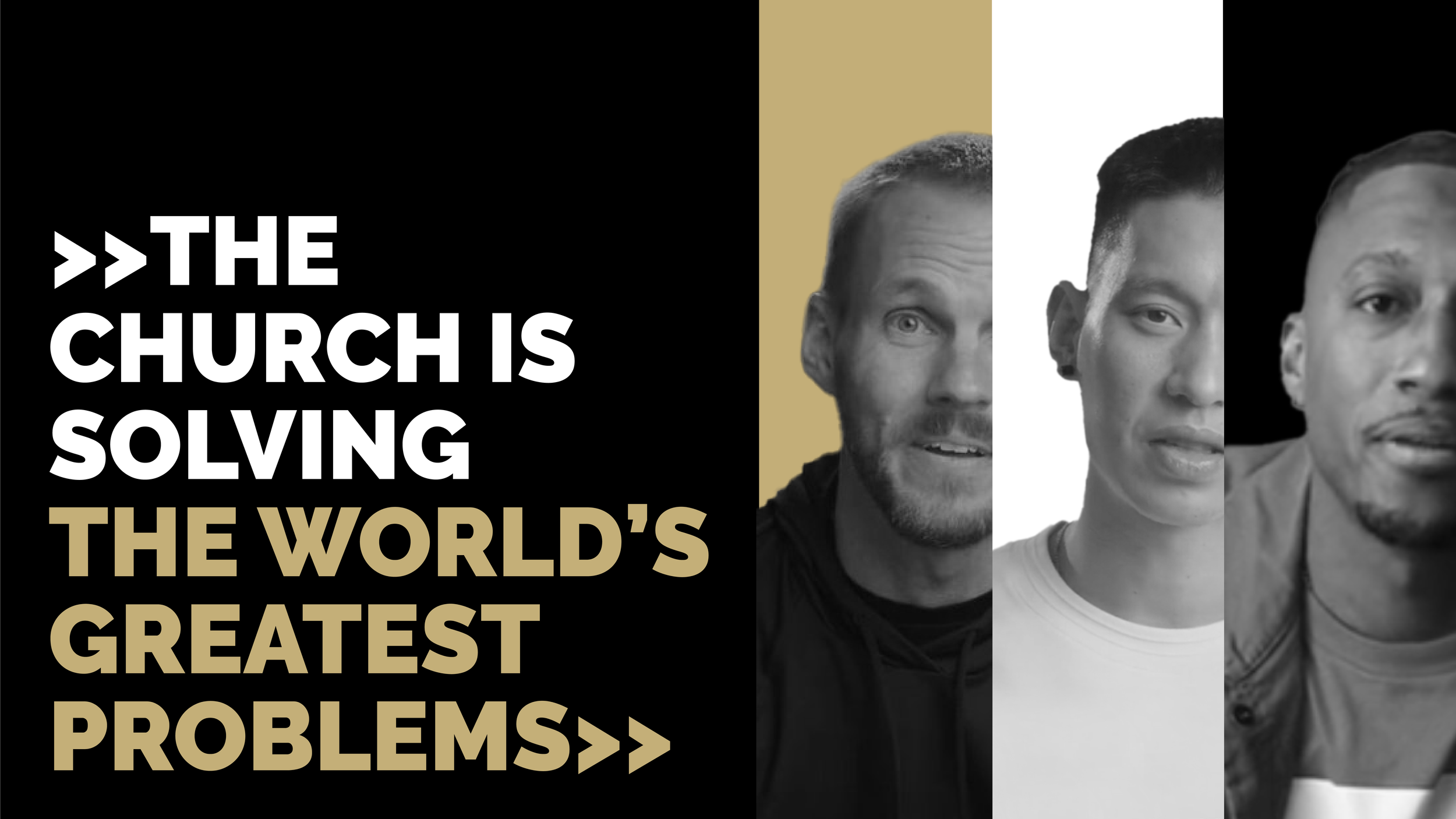
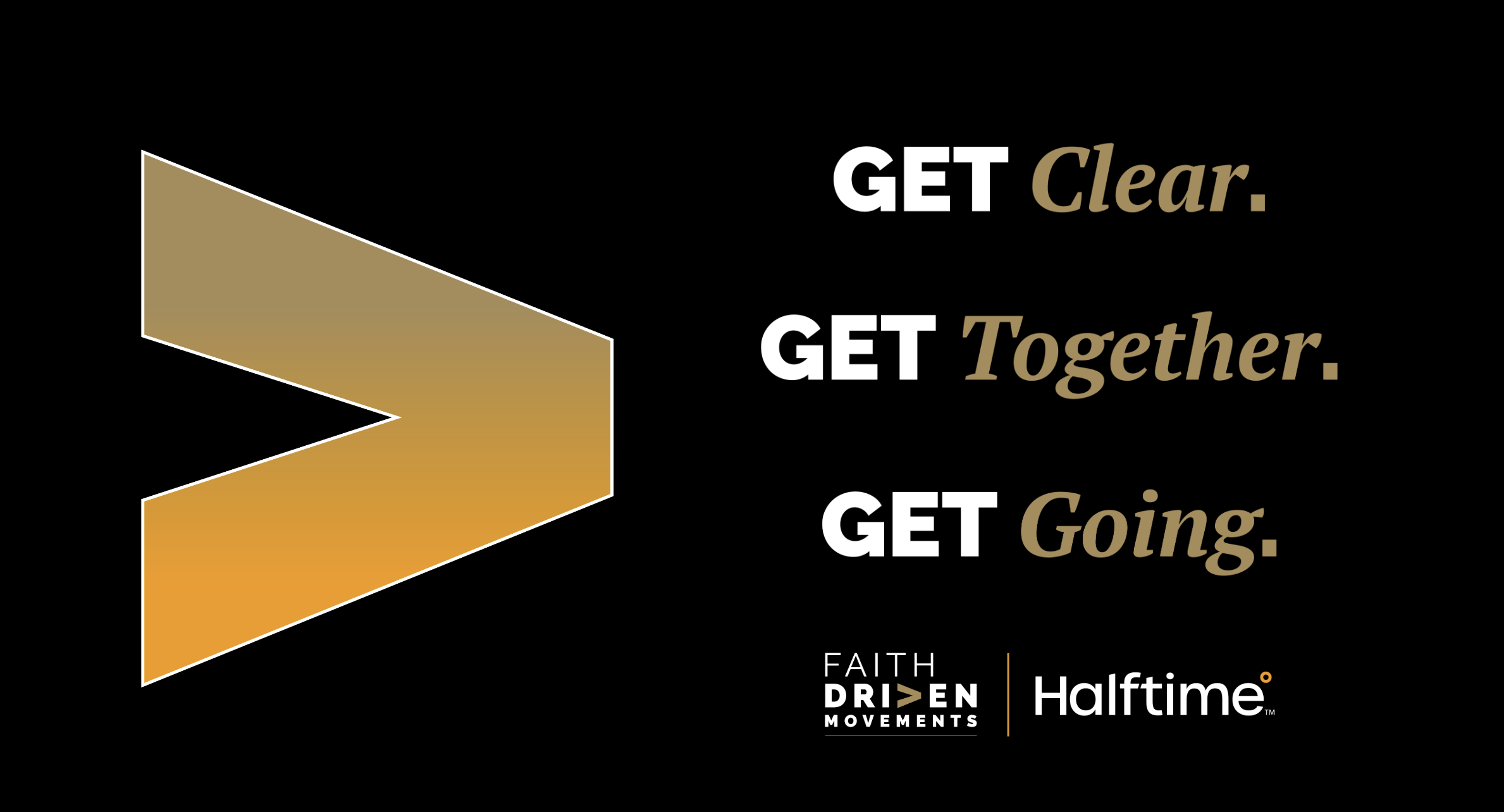
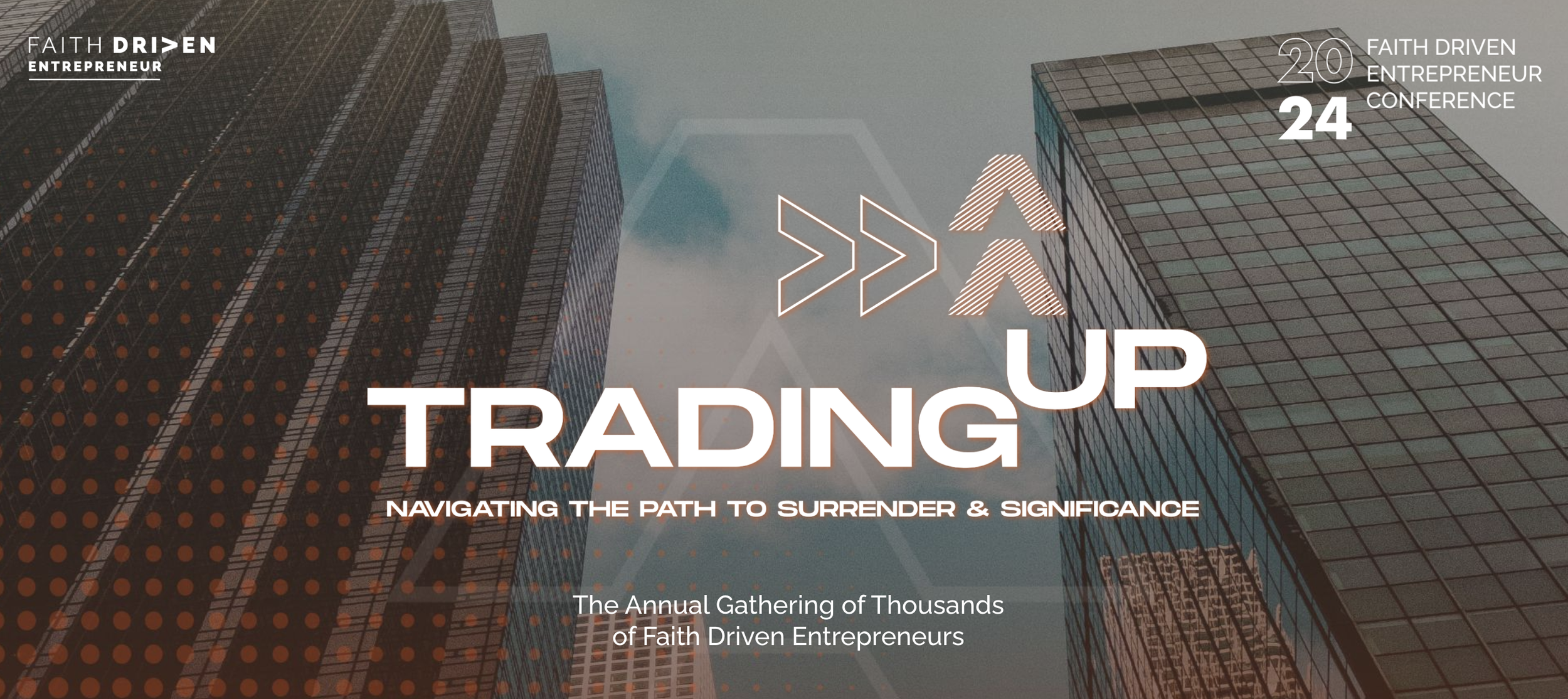
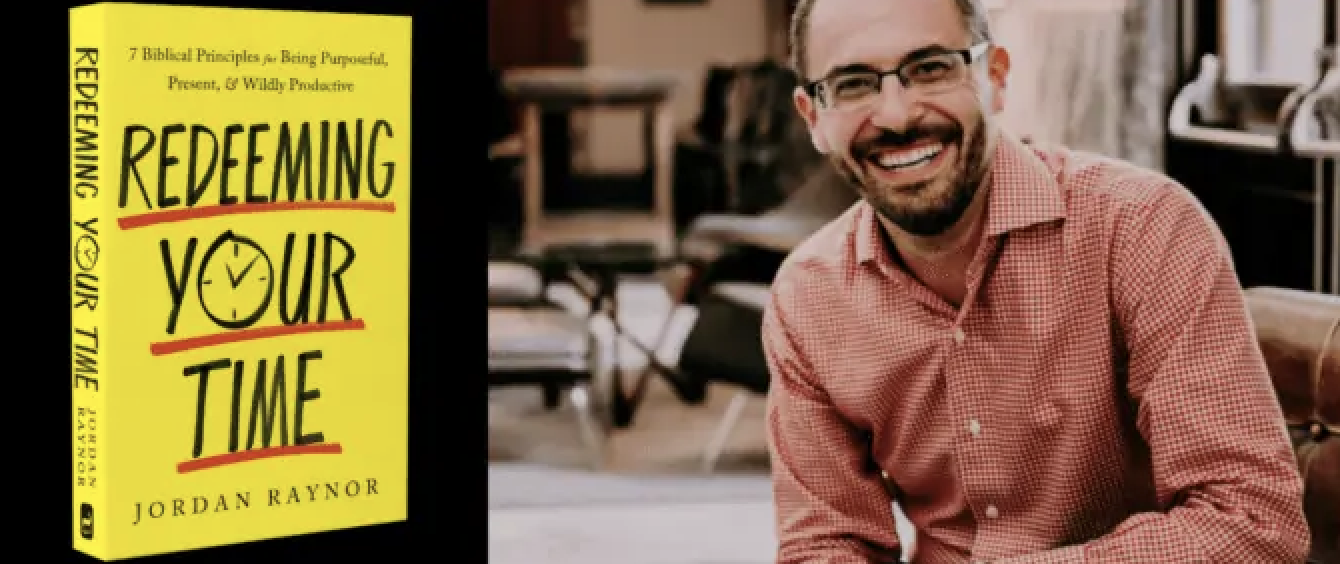
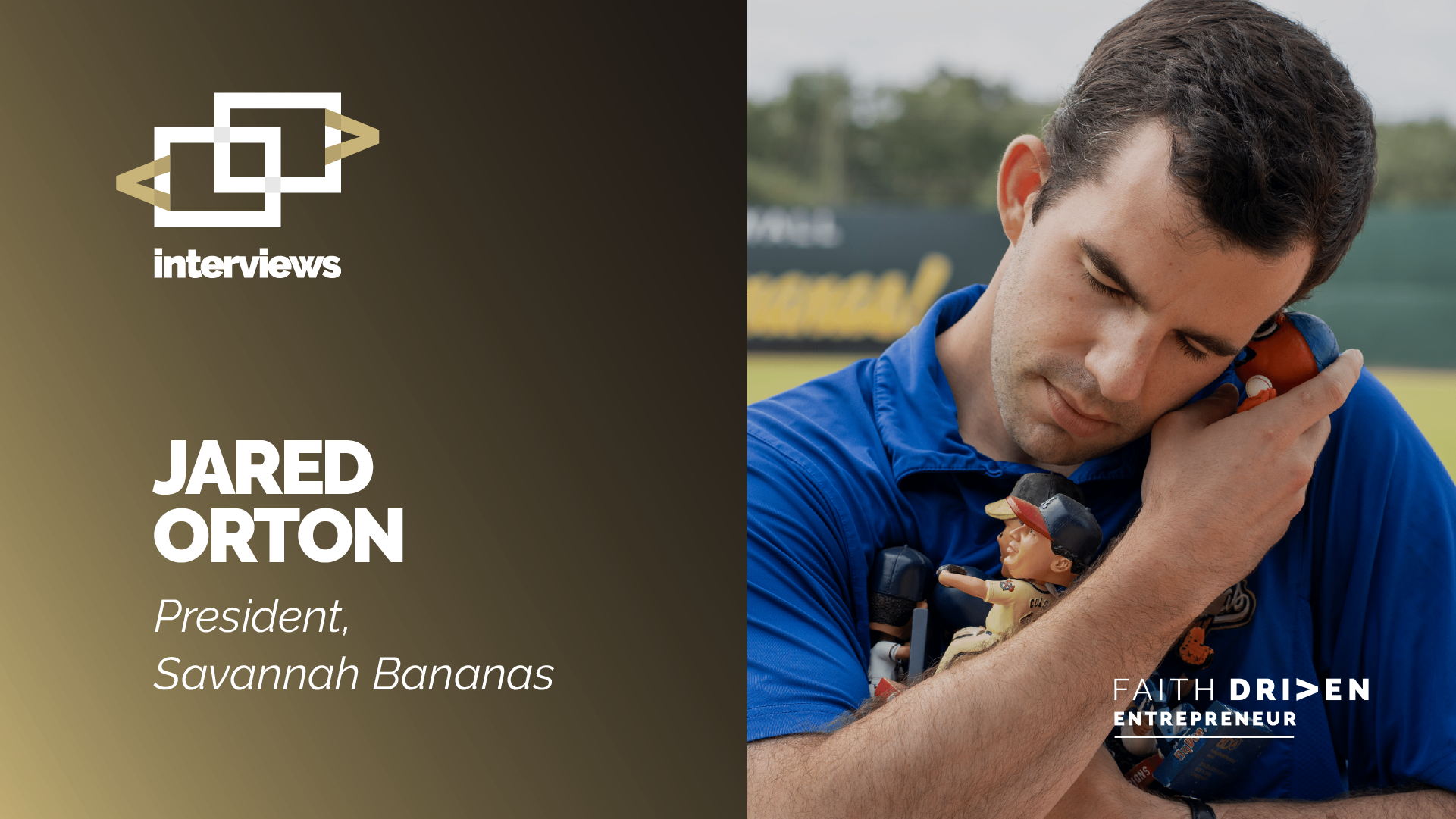
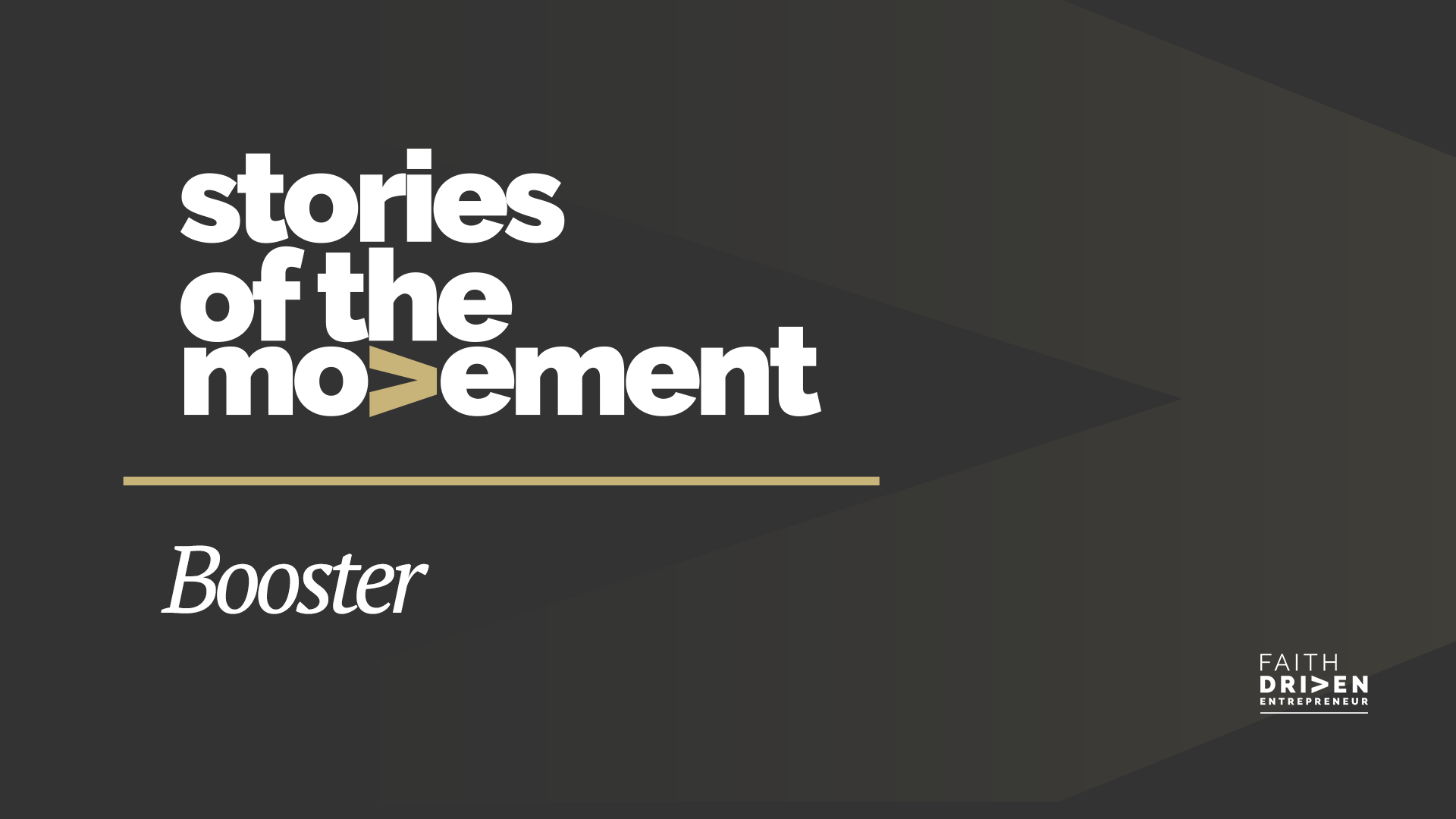
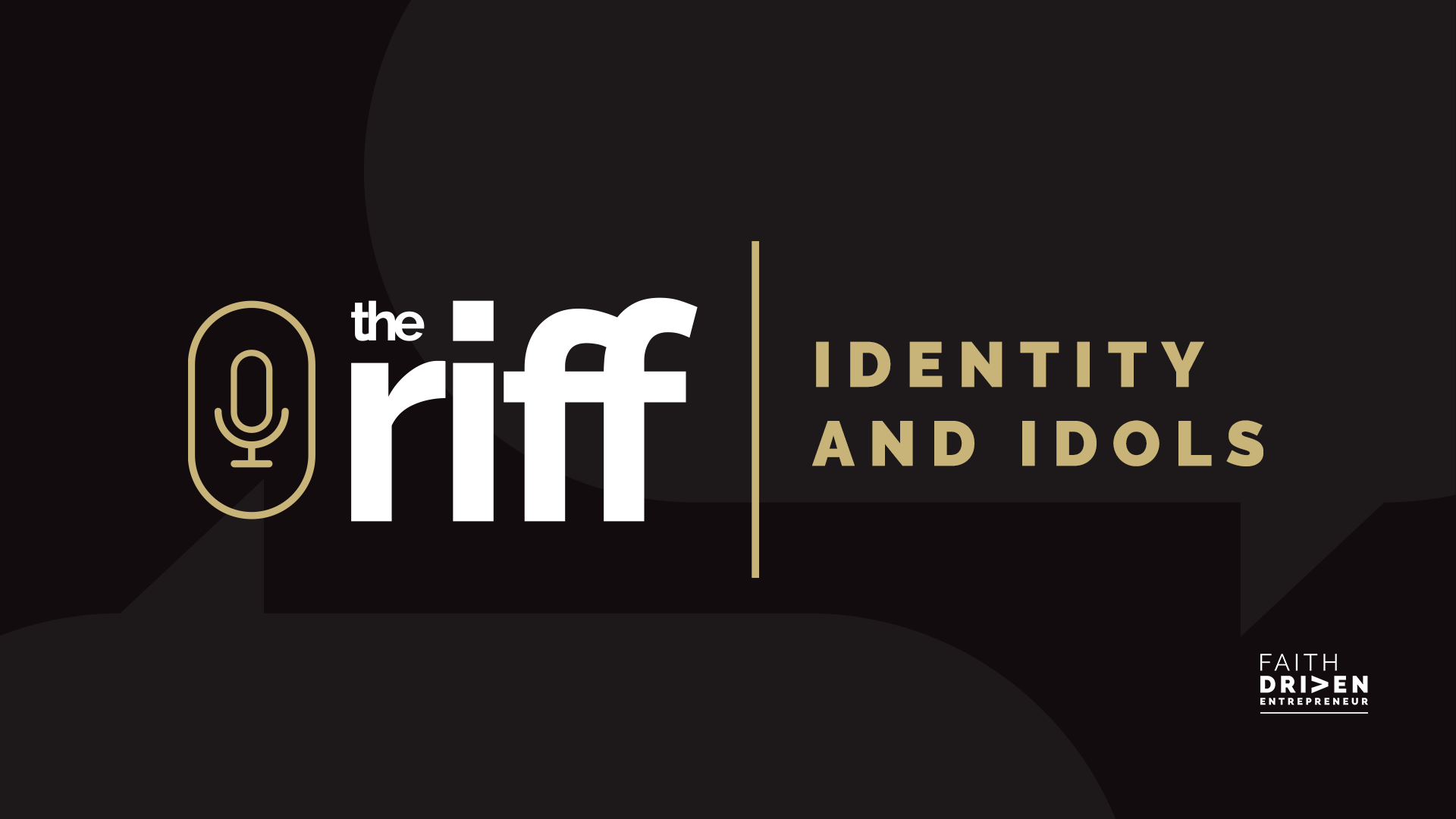
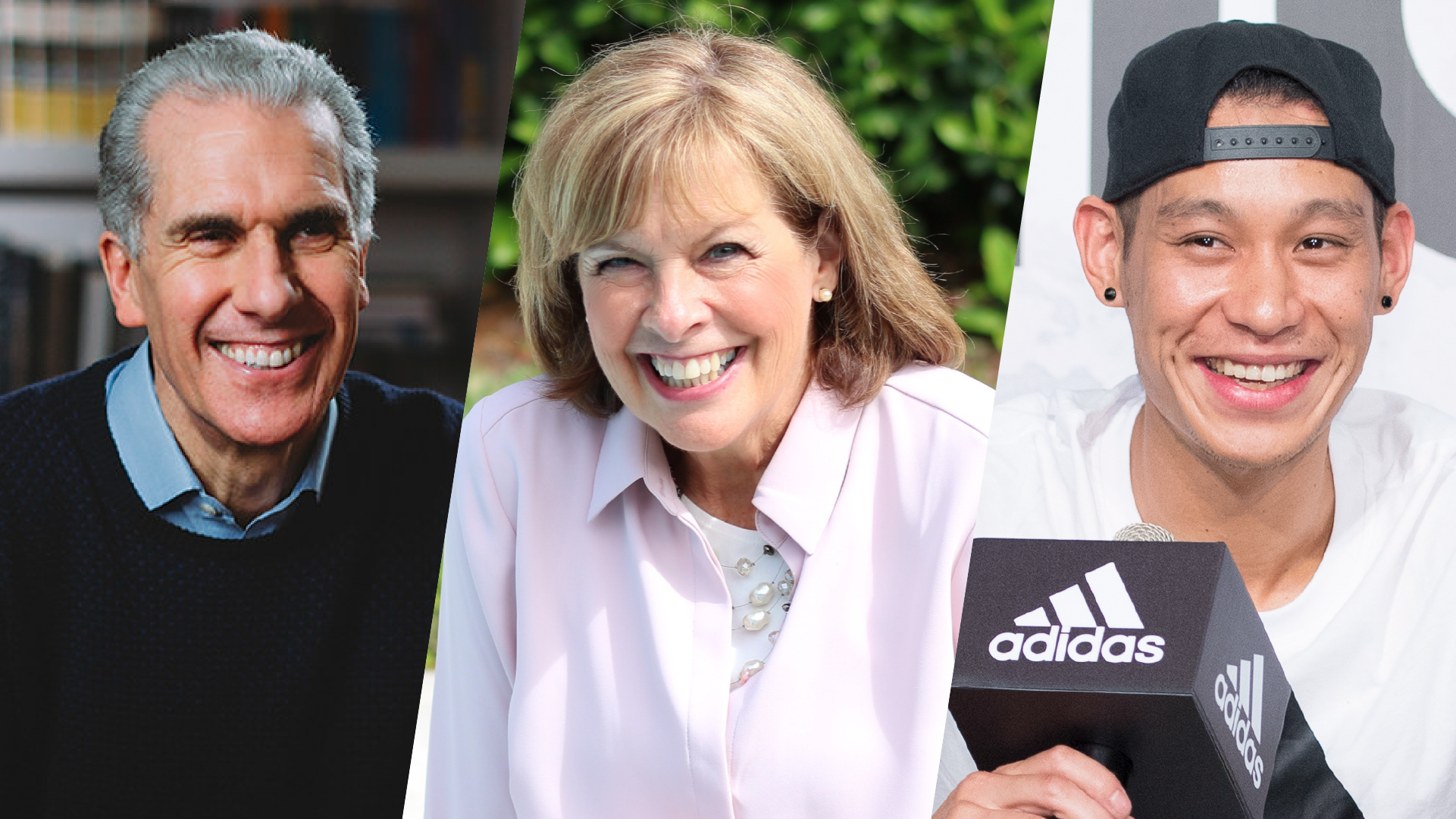
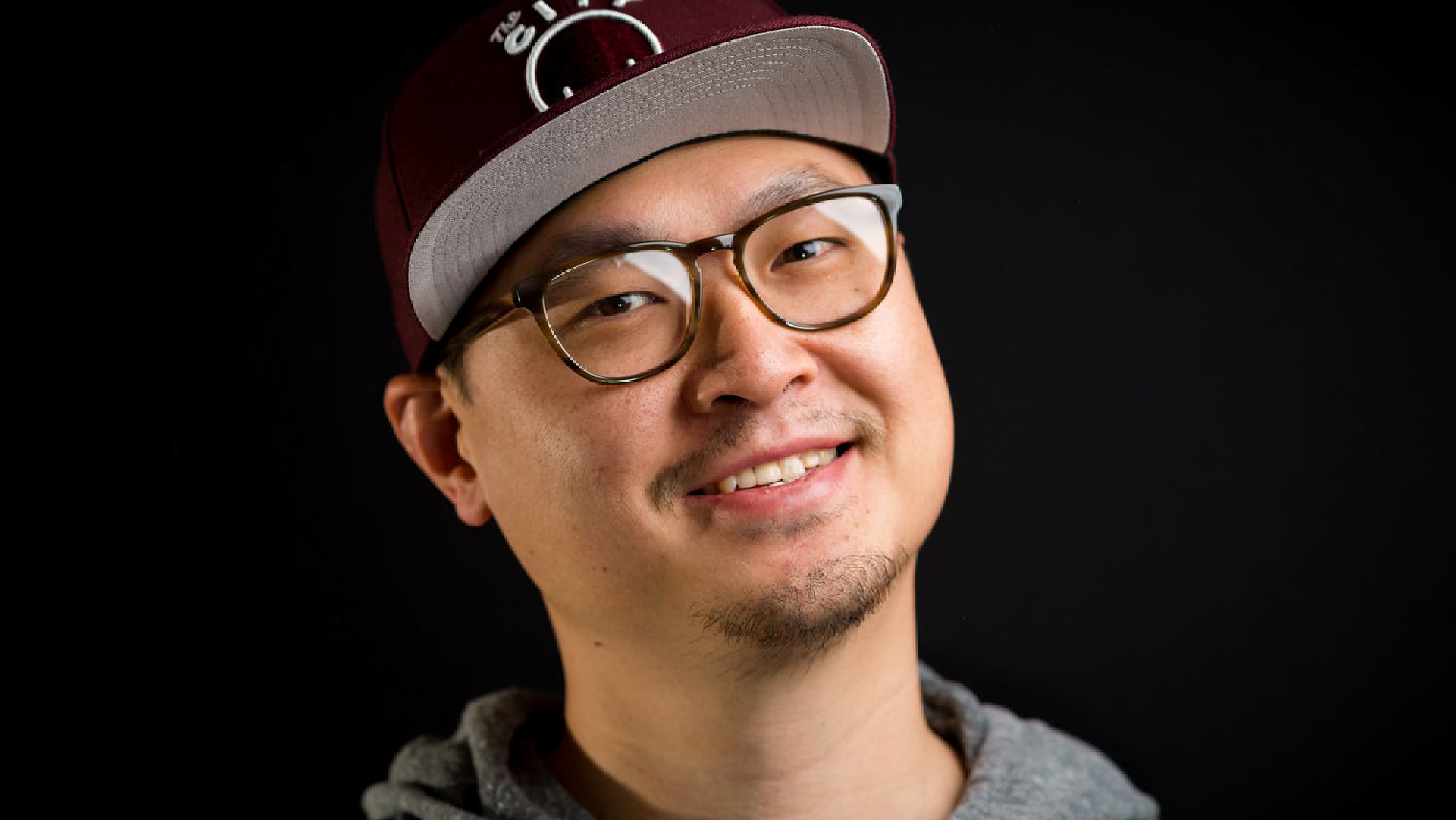
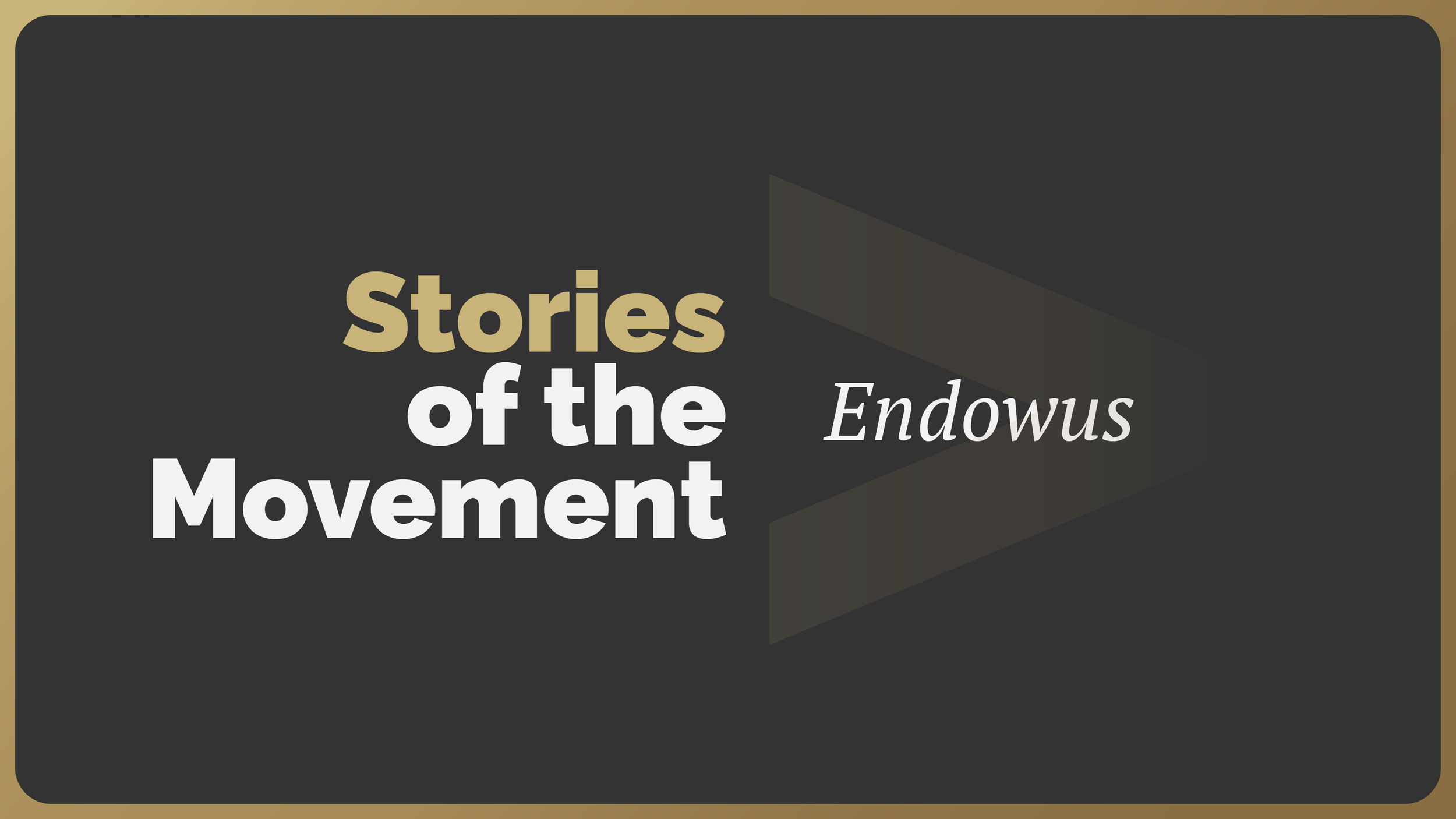

Follow the podcast